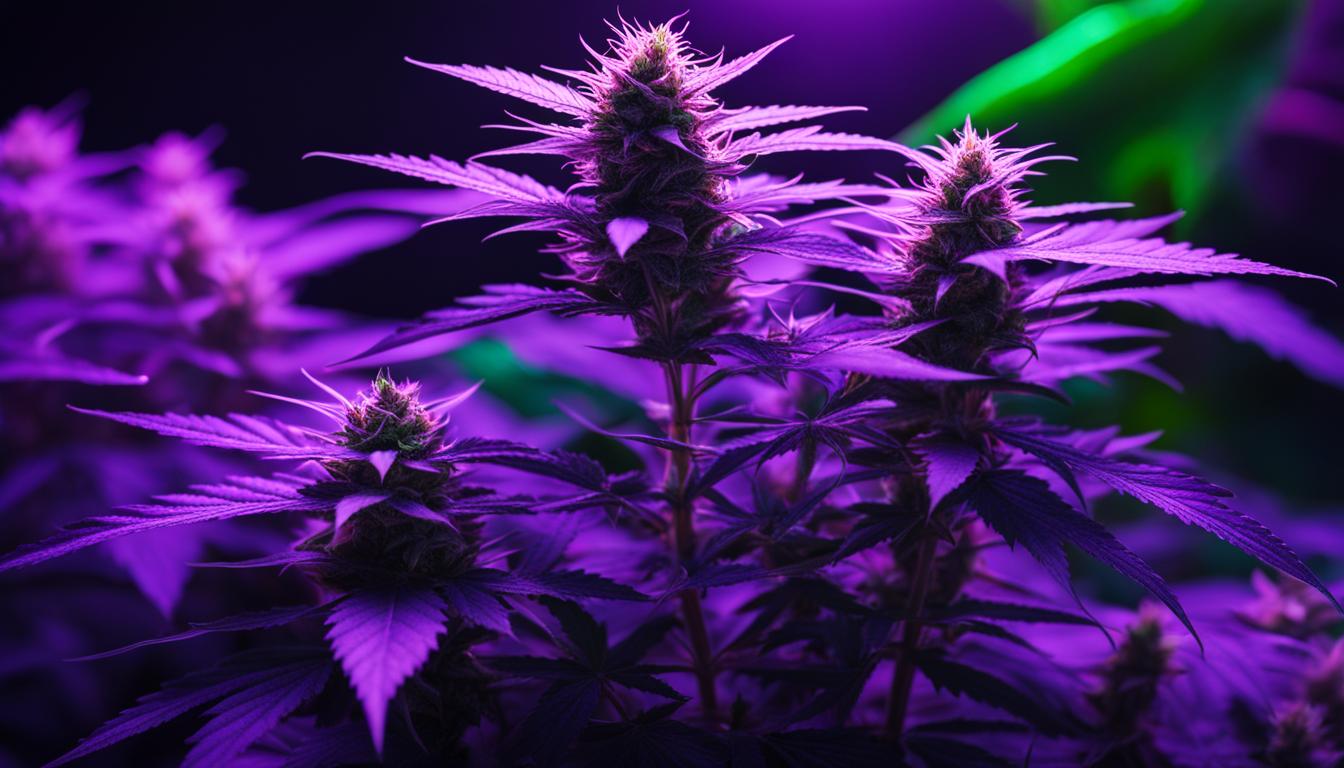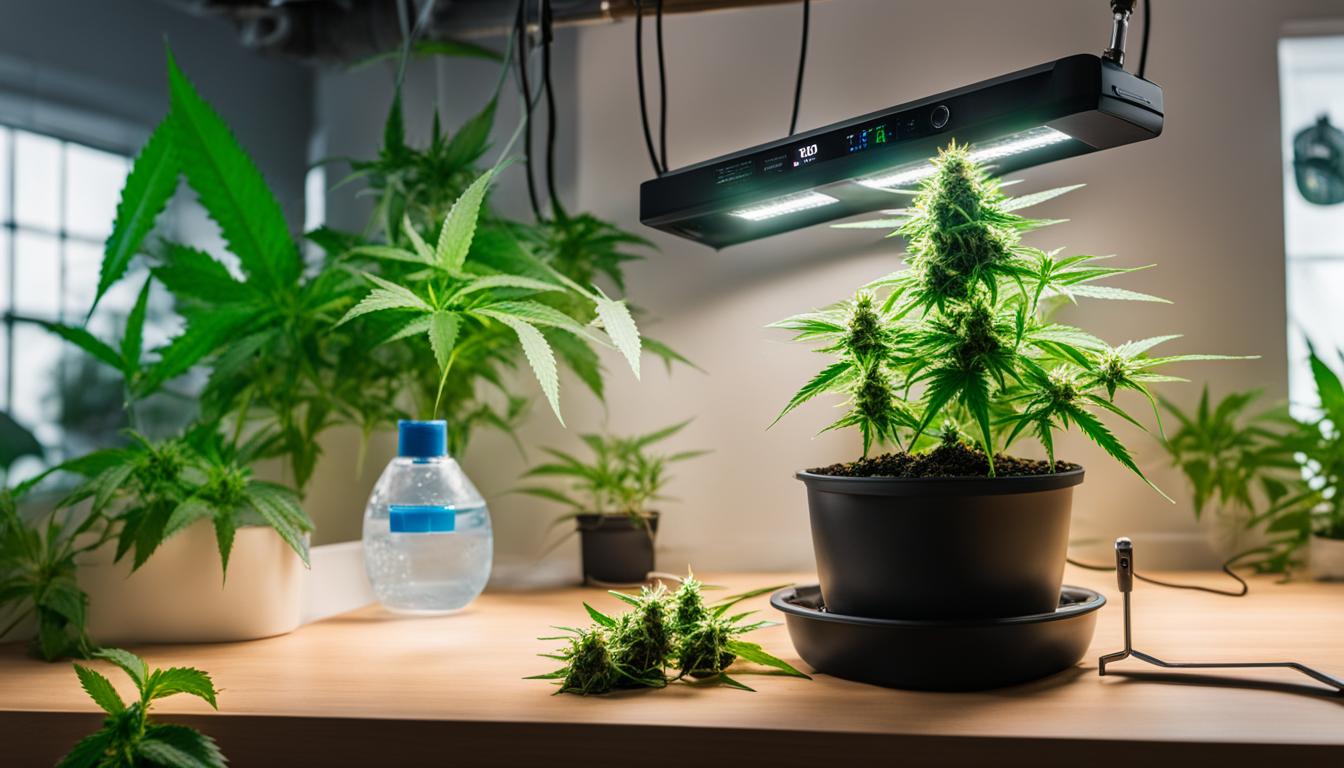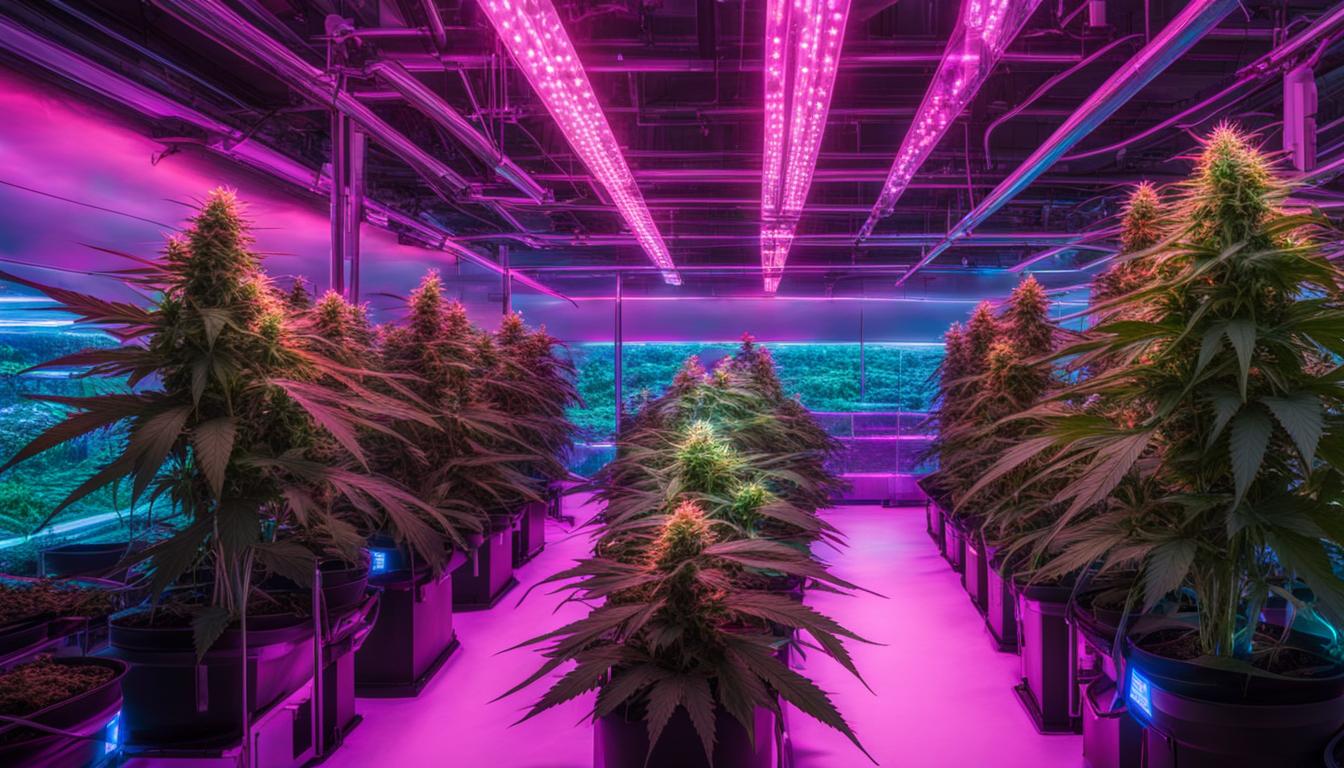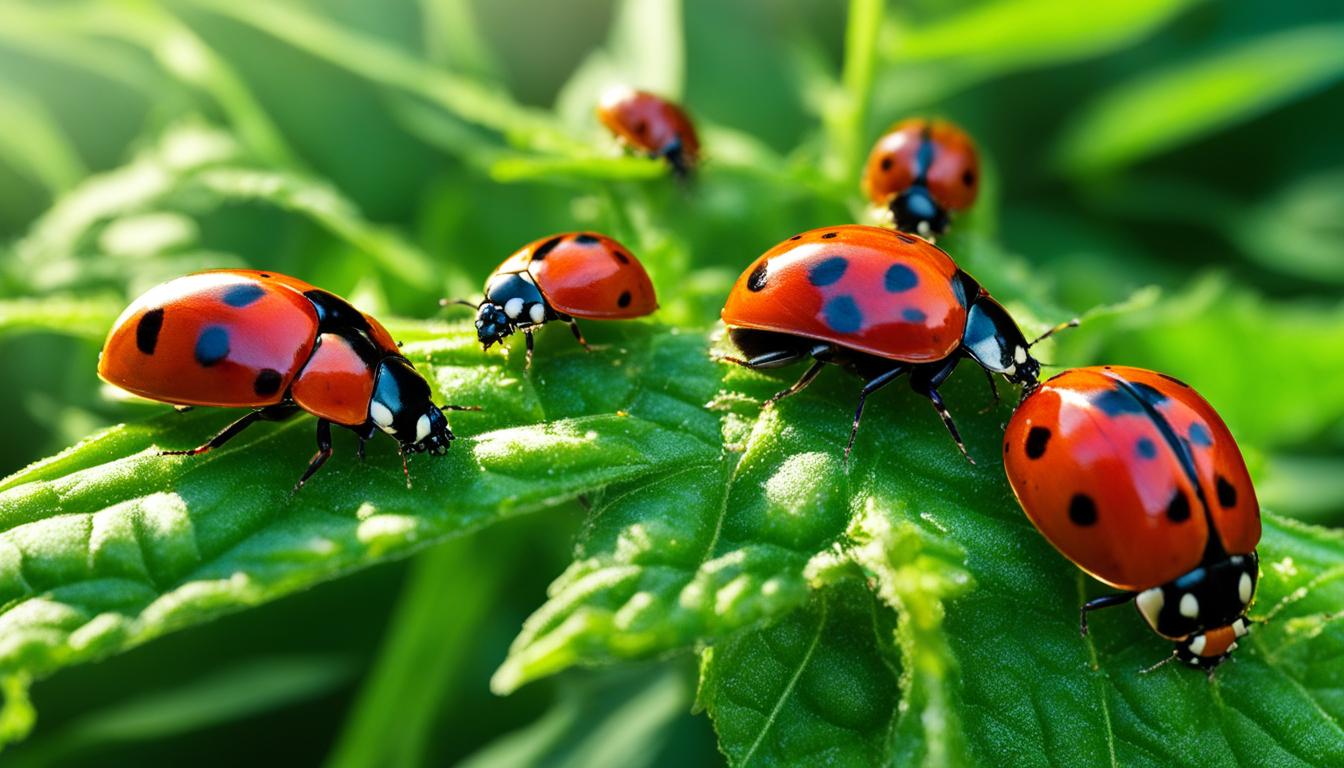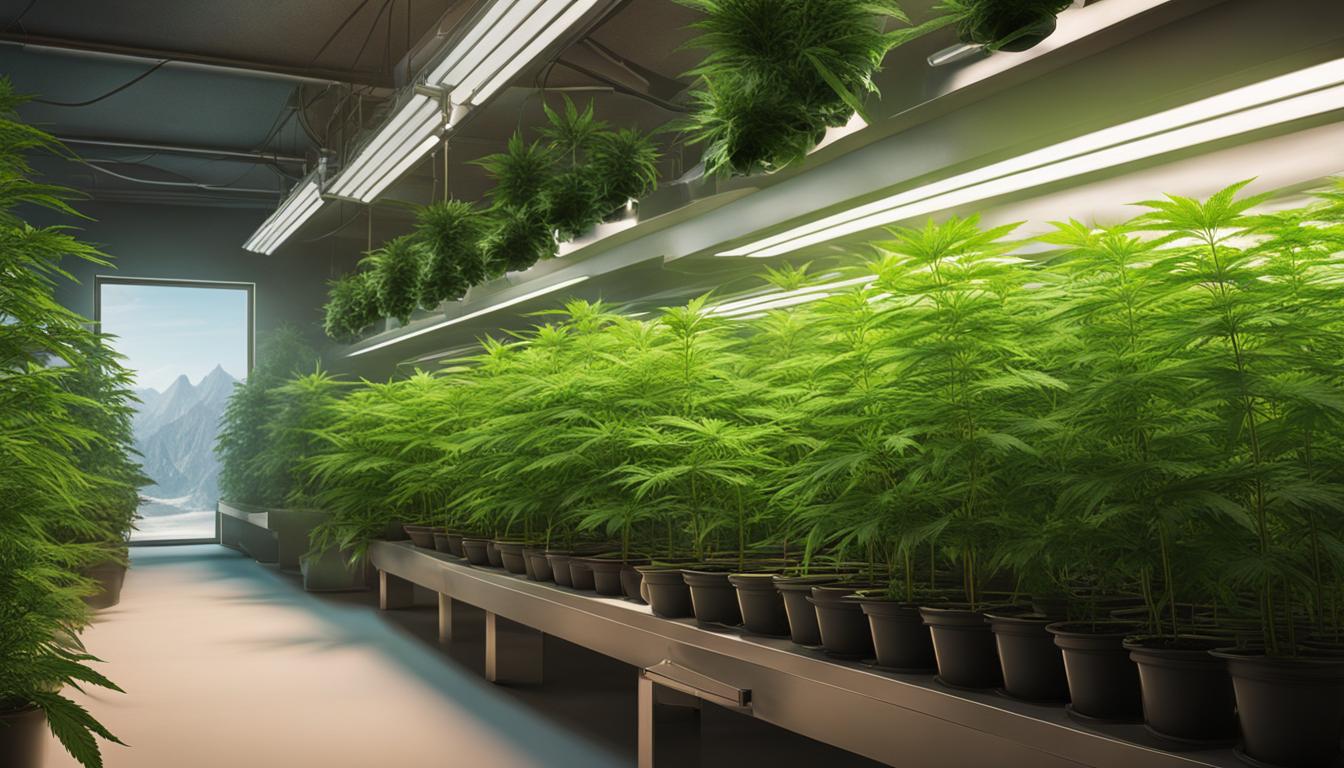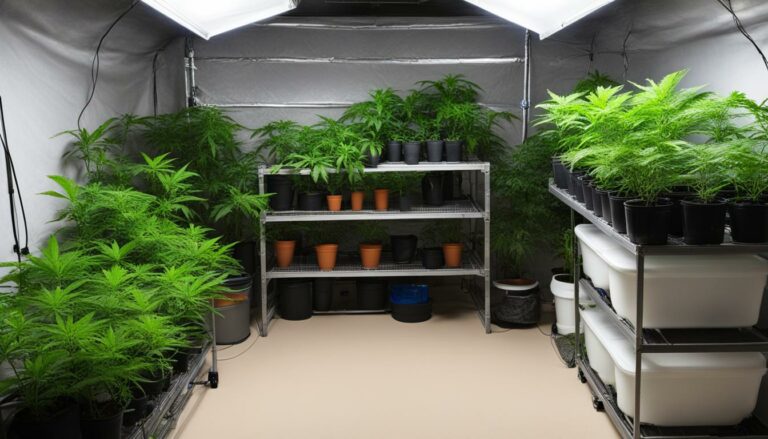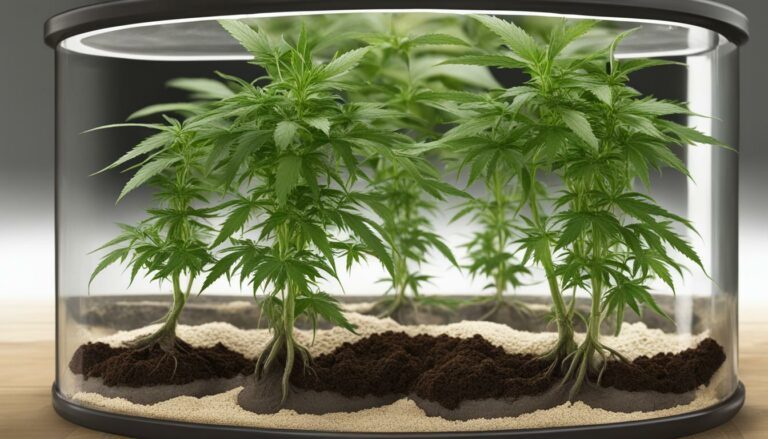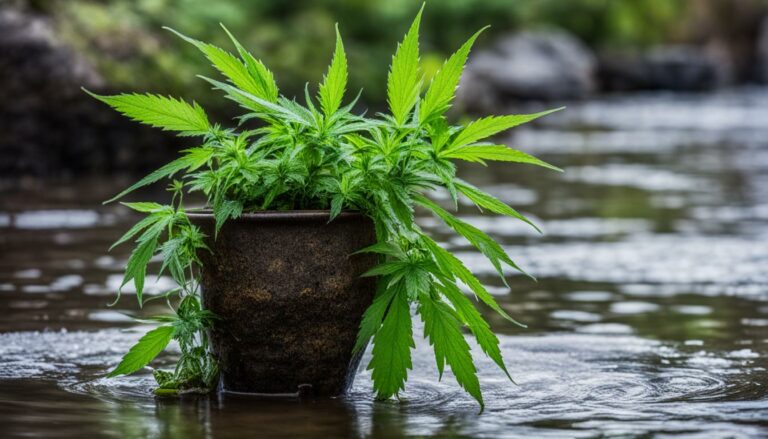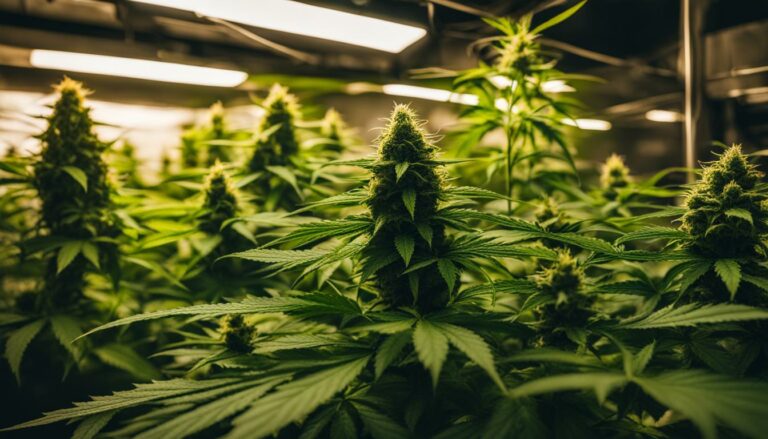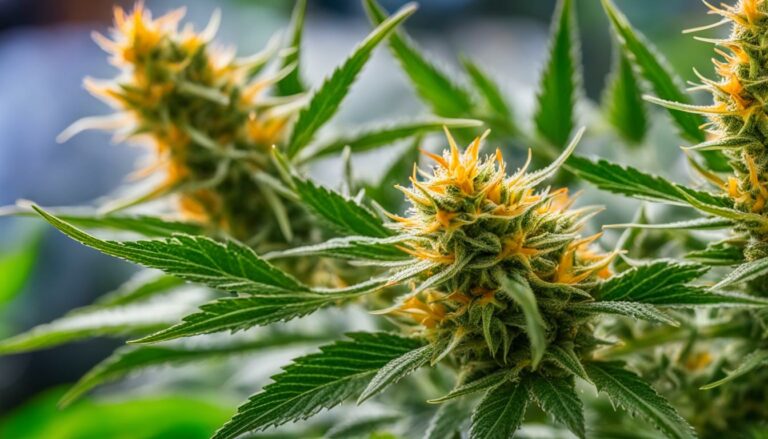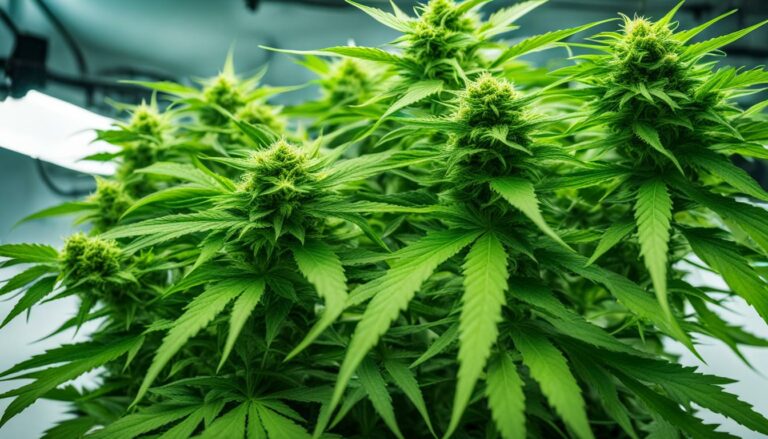Cannabis Cultivation Myths Debunked
Growing your own cannabis is an exciting and rewarding endeavor. However, there are many misconceptions and myths surrounding cannabis cultivation that can discourage aspiring growers. In this article, we will debunk popular cannabis cultivation myths and separate fact from fiction, empowering you to embark on your cultivation journey with confidence.
Dispelling common misconceptions about cannabis cultivation is crucial to understanding the truth behind growing cannabis. By debunking these myths, we aim to provide you with the knowledge and insights needed to separate fact from fiction and cultivate your own cannabis successfully.
Join us as we explore the top myths about cannabis cultivation, from the belief that it takes a lot of money to grow cannabis to the misconception that hydroponics is the best method. By the end of this article, you will have a clear understanding of the realities of growing cannabis and the confidence to pursue your cultivation dreams.
Myth 1: It takes a lot of money to grow cannabis yourself
Contrary to popular belief, growing cannabis doesn’t have to be expensive. While indoor cultivation may require some initial investment in equipment, there are affordable starter kits available. Additionally, growing outdoors can be done with minimal costs, requiring only quality soil, seeds, and patience.
By opting for budget-friendly alternatives and making use of natural resources such as sunlight, you can significantly reduce the overall expenses of cannabis cultivation. With careful planning and resourcefulness, it is entirely possible to embark on a cost-effective cannabis growing journey without breaking the bank.
Remember, growing cannabis on a budget doesn’t mean compromising on quality or yield. It’s all about finding smart solutions, utilizing available resources, and making informed choices that align with your financial capabilities.
Myth 2: Growing cannabis is too challenging unless you have a green thumb
Contrary to popular belief, you don’t need to be an experienced gardener with a natural talent for growing to cultivate cannabis successfully. In fact, many resilient cannabis strains are beginner-friendly and can yield decent results with minimal effort. Growing cannabis can be an enjoyable and rewarding experience for novice growers looking to develop their cultivation skills.
The key to easy cannabis cultivation is choosing the right strain. There are several beginner-friendly strains available on the market that are specifically bred to be low-maintenance and forgiving. These strains have been carefully selected for their resistance to pests and diseases, as well as their ability to thrive in a variety of growing conditions.
Additionally, advancements in technology have made it easier than ever to monitor and automate various aspects of the cultivation process. From automated watering systems to digital temperature and humidity controllers, these tools can help simplify the growing process and ensure optimal conditions for your plants.
Developing Cultivation Skills
While it’s true that practice makes perfect, cultivating cannabis is not as daunting as it may seem. Like any skill, it takes time and experience to develop a green thumb. As a novice grower, it’s important to start with a small number of plants and gradually increase the size of your operation as you gain confidence and knowledge.
There are plenty of online resources, forums, and communities dedicated to helping beginner growers learn and improve their cultivation skills. Engaging with experienced growers can provide valuable insights, tips, and techniques that can accelerate your learning curve. Experimenting with different cultivation methods and techniques will also help you understand what works best for you and your plants.
Remember, the key to becoming a successful cannabis cultivator is patience, observation, and a willingness to learn from both successes and failures. Don’t be discouraged by initial setbacks, as they are a natural part of the learning process. With time and dedication, you’ll be able to grow cannabis with confidence and achieve optimal results.
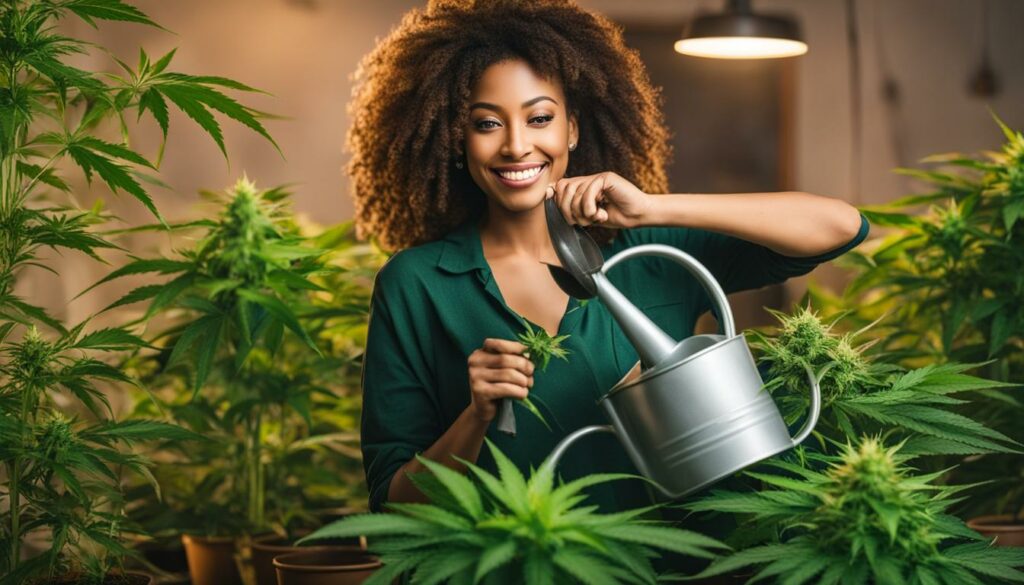
| Benefits of Easy Cannabis Cultivation for Novice Growers | Tips for Developing Cultivation Skills |
|---|---|
|
|
Myth 3: Growing skill is more important than genetics
One common myth in cannabis cultivation is the belief that growing skill is more important than genetics. While cultivating cannabis requires knowledge and experience, the quality of your cannabis plants is heavily influenced by the genetics of the seeds you choose to grow. Skilled growers can indeed achieve impressive results with average seeds, but novice growers can also achieve success by starting with high-quality seeds specifically bred for easy cultivation. Genetics play a significant role in determining the potential yield, potency, and overall quality of your cannabis plants.
When selecting cannabis seeds, it is important to consider various factors. Look for reputable seed banks that offer a wide range of genetically stable strains. These strains have been carefully bred and selected to exhibit desirable traits such as high yields, resistance to pests and diseases, and shorter flowering times. It is also essential to choose a strain that matches your cultivation environment, whether it be indoor or outdoor. Some strains are better suited for specific growing conditions, such as those that thrive in cooler climates or have a natural resistance to high humidity.
“Genetics play a significant role in determining the potential yield, potency, and overall quality of your cannabis plants.”
By starting with high-quality genetics, novice growers can eliminate some of the challenges associated with cultivating cannabis. These seeds are often more resilient and forgiving, making it easier for beginners to achieve successful harvests. Additionally, high-quality genetics can provide a greater level of consistency in terms of growth patterns, cannabinoid content, and aroma profiles.
| Importance of Genetics in Cannabis Cultivation | Skilled Growers vs. Quality Seeds |
|---|---|
| Genetics determine the potential yield, potency, and overall quality of cannabis plants. | Skilled growers can achieve better results with average seeds, but novice growers can still achieve success by starting with high-quality seeds. |
| High-quality genetics provide resilience, consistency, and desirable traits such as resistance to pests and diseases. | Starting with high-quality genetics eliminates some challenges for novice growers and ensures a more rewarding cultivation experience. |
| Reputable seed banks offer genetically stable strains that match specific cultivation environments. | Genetically stable strains provide consistent results and allow growers to cultivate cannabis that thrives in their specific environment. |
Ultimately, cultivating cannabis is a combination of skill and genetics. While developing your cultivation skills is important, starting with high-quality genetics can significantly increase your chances of success. By understanding the importance of genetics in cannabis cultivation, both novice and skilled growers can make informed decisions when selecting seeds and achieve optimal results in their cannabis gardens.
The Truth About Bagseed: Disadvantages and Recommended Cannabis Seeds for Beginners
When it comes to cannabis cultivation, using bagseed – random seeds found in cannabis buds – may seem like a cost-effective and convenient option for beginner growers. However, it’s important to understand the truth about bagseed and its disadvantages to ensure a successful and rewarding growing experience.
Bagseed often produces inferior plants with dissatisfactory yields. Unlike high-quality seeds specifically bred for cultivation, bagseed lacks consistency and genetic stability. This means that the resulting plants may exhibit undesirable traits, such as weak growth, hermaphroditism, or poor resin production. These genetic shortcomings can significantly impact the overall quality and potency of your cannabis crop.
For beginners, it is highly recommended to invest in reliable and reputable cannabis seeds. These seeds are bred by experienced breeders to ensure stable genetics, robust growth, and high-quality yields. By choosing recommended cannabis seeds for beginners, you can start your cultivation journey with confidence, knowing that you have the best foundation for success.
| Disadvantages of Bagseed | Recommended Cannabis Seeds for Beginners |
|---|---|
| 1. Inconsistent genetics | 1. Reliable and stable genetics |
| 2. Poor quality and low yields | 2. High-quality seeds for optimal yields |
| 3. Increased risk of hermaphroditism | 3. Feminized or auto-flowering seeds |
| 4. Weak growth and susceptibility to diseases | 4. Resilient strains for beginner growers |
Investing in recommended cannabis seeds for beginners not only increases your chances of a successful harvest but also provides you with the opportunity to cultivate strains that suit your preferences, whether it’s for medicinal use, recreational purposes, or specific flavor profiles. By starting with quality seeds, you set yourself up for a positive and rewarding cultivation journey.
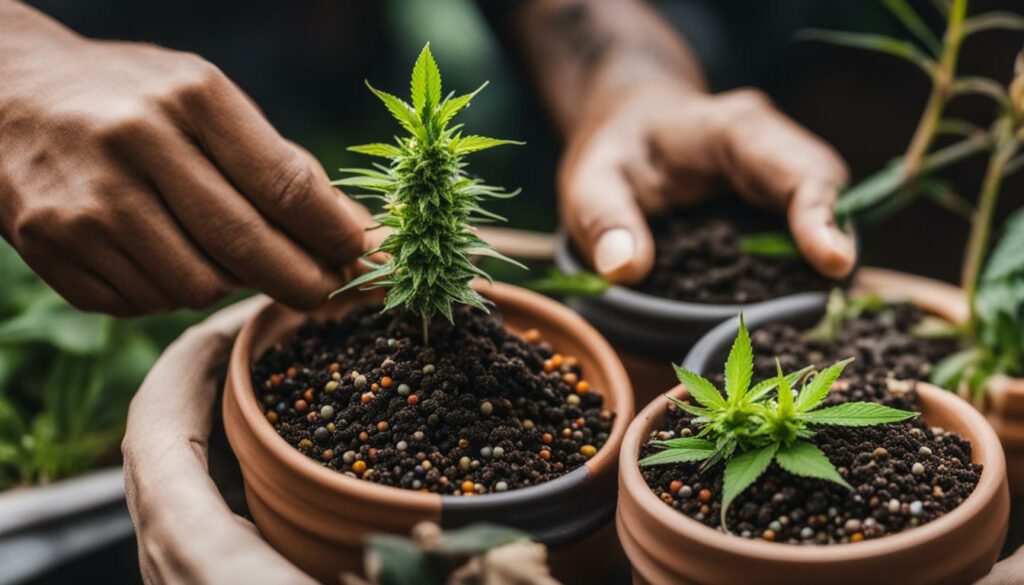
Myth 5: Adding fruit juice improves the flavor
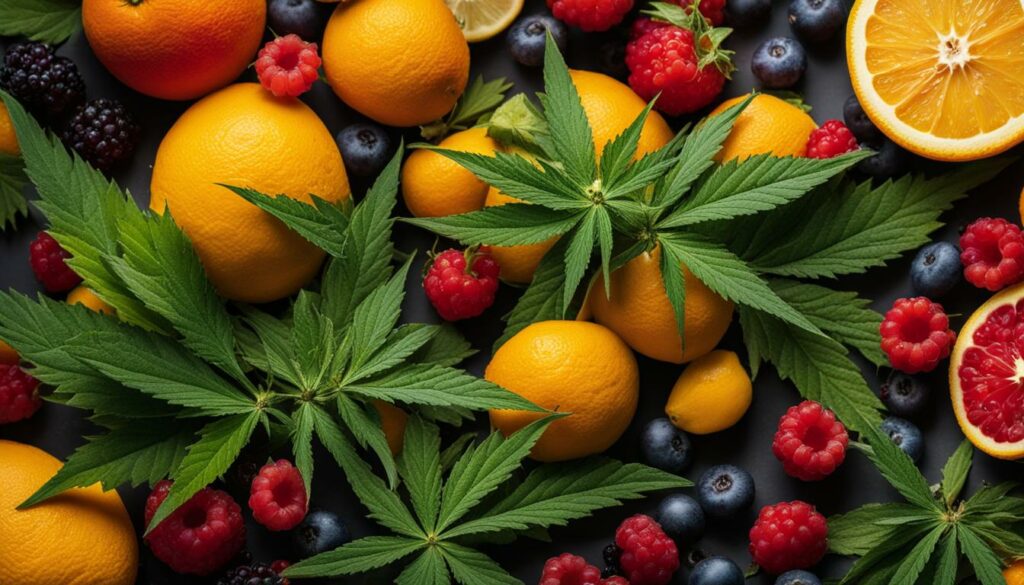
When it comes to cultivating cannabis, flavor is an important factor for many growers. However, there is a common misconception that adding fruit juice to your cannabis plants can enhance the flavor. This myth suggests that the natural sugars and acidity in fruit juice can improve the taste of the final product. Unfortunately, this belief is not supported by scientific evidence.
The flavor of cannabis is determined by its terpene profile. Terpenes are naturally occurring compounds that give cannabis its unique aromas and flavors. The terpene profile is primarily influenced by the specific genetics of the plant and can be enhanced by providing the plant with optimal growing conditions, such as proper lighting, temperature, and nutrient levels.
While certain nutrients can support the production of a more complex terpene profile, adding fruit juice to the growing process will not have the desired effect. In fact, it can potentially harm your plants. Fruit juice contains sugars that can attract pests and promote the growth of harmful bacteria or fungi, leading to plant diseases. It’s best to focus on providing your cannabis plants with the appropriate nutrients and creating a favorable environment for the development of their natural aromas.
Myth 5: The Truth
“Adding fruit juice to cannabis plants does not enhance the flavor. The flavor is determined by the plant’s terpene profile, which is primarily influenced by genetics and growing conditions.”
By understanding the true factors that contribute to flavor enhancement in cannabis cultivation, growers can focus their efforts on optimizing the terpene profile through genetics, proper care, and cultivation techniques. This way, they can produce cannabis with rich and natural aromas that truly enhance the overall experience.
Myth 6: The more nutrients you add, the better
When it comes to cannabis cultivation, it’s important to understand that more isn’t always better, especially when it comes to nutrients. While providing your plants with essential nutrients is crucial for their growth and development, overfeeding them can have detrimental effects.
Excessive nutrients can lead to a condition called nutrient burn, which occurs when an abundance of nutrients accumulates in the plant’s tissues. This can lead to yellowing or browning of the leaf tips, stunted growth, and overall poor plant health.
To ensure optimal nutrient levels for your cannabis plants, it’s essential to understand their specific nutrient requirements. Different stages of growth, such as vegetative and flowering, may require varying levels of nutrients. Using a reliable nutrient feeding schedule can help you provide your plants with the right amount of nutrients at the right time.
| Nutrient | Function | Signs of Deficiency | Signs of Excess |
|---|---|---|---|
| Nitrogen | Essential for vegetative growth and chlorophyll production | Pale or yellow leaves, stunted growth | Burnt leaf tips, dark green leaves |
| Phosphorus | Promotes root development and flowering | Purple or red stems, delayed flowering | Burnt leaf tips, stunted growth |
| Potassium | Aids in nutrient absorption and overall plant health | Yellow or brown leaf margins, weak stems | Burnt leaf tips, stunted growth |
Remember, it’s better to slightly underfeed your cannabis plants than to overfeed them. If in doubt, always err on the side of caution and start with lower nutrient concentrations, gradually increasing as needed. This will help prevent nutrient burn and promote healthy, thriving plants.
Myth 7: Cannabis cultivation requires big pots and lots of space
Contrary to popular belief, you don’t need a vast expanse of land or massive pots to successfully cultivate cannabis. With the right techniques and strain selection, you can grow cannabis in small spaces using container gardening methods. This opens up opportunities for urban dwellers and those with limited outdoor areas to embark on their cultivation journey.
Compact cannabis varieties are specifically bred to thrive in confined spaces, making them ideal for container gardening. These strains typically have shorter heights and more manageable lateral growth, allowing you to maximize your available area. Additionally, container gardening provides the advantage of portability, enabling you to move your plants easily to optimize light exposure or protect them from unfavorable weather conditions.
When practicing container gardening, it is crucial to select the appropriate pot size for your cannabis plants. While smaller pots can be used, it’s essential to consider the root development and provide enough space for proper growth. A general guideline is to use pots that are at least 5-7 gallons in volume for outdoor cultivation and slightly larger for indoor setups.
| Myth | Reality |
|---|---|
| Big pots and extensive space are necessary for cannabis cultivation. | Cannabis can be grown in smaller pots using container gardening techniques, maximizing space and portability. |
| Compact cannabis varieties are difficult to find. | Many seed banks offer a wide selection of compact strains specifically bred for small-space cultivation. |
| Container gardening limits yield and plant size. | With proper care and cultivation techniques, container-grown cannabis plants can yield impressive results. |
By utilizing container gardening and compact cannabis varieties, you can successfully cultivate cannabis in small spaces, whether it be a balcony, rooftop, or even a closet. Embrace the versatility and convenience of container gardening, and let your green thumb shine, no matter the size of your cultivation area.
Myth 8: Hydro is the best way to grow weed
When it comes to cannabis cultivation, there is a common misconception that hydroponics is the superior method. While hydroponic cultivation does offer certain advantages, it is not necessarily the best option for all growers. It requires advanced knowledge, specialized equipment, and meticulous attention to detail, making it less suitable for beginners or those looking for a more straightforward approach to growing cannabis.
One of the primary benefits of hydroponic cultivation is its ability to provide precise control over nutrient delivery. By allowing plants to absorb nutrients directly from a nutrient-rich solution, hydroponics can potentially result in faster growth and increased yields. However, this method also requires strict monitoring and adjustment of nutrient levels, pH, and water quality, which can be time-consuming and challenging for less experienced growers.
On the other hand, soil cultivation offers a more forgiving and accessible approach to cannabis cultivation. It provides a natural buffer for nutrient release and retains moisture, reducing the risk of nutrient imbalances and overwatering. Additionally, soil cultivation does not require complex equipment or constant monitoring, making it a more beginner-friendly option.
While hydroponics can offer impressive results in the hands of experienced growers, it is not inherently superior to soil cultivation. Both methods have their pros and cons, and the choice ultimately depends on the grower’s level of experience, resources, and preferences. Whether you opt for hydroponics or soil, the key to successful cannabis cultivation lies in understanding the specific needs of your plants, providing them with the necessary care, and adapting your approach to suit their unique requirements.
| Hydroponics | Soil Cultivation | |
|---|---|---|
| Advantages |
|
|
| Disadvantages |
|
|
Related Articles
- What Are the Common Myths About Growing Cannabis?
- Can Music or Talking to Plants Really Affect Cannabis Growth?
- Is It True That Cannabis Plants Can Be Grown in Any Soil?
- Do LED Lights Always Result in Higher Quality Cannabis?
- Can You Really Grow Cannabis with Minimal Effort and Experience?
Conclusion
After debunking common myths about cannabis cultivation, you can now confidently embark on your journey to grow your own cannabis. Armed with the right knowledge and mindset, you will be able to separate fact from fiction and achieve successful cultivation.
Remember, proper research is crucial for understanding the requirements of cannabis plants. By choosing high-quality seeds specifically bred for easy cultivation, you can ensure better results and a more rewarding growing experience.
With attentive care and the application of the correct cultivation techniques, you can overcome any misconceptions and enjoy the benefits of growing your own cannabis. By cultivating with confidence, you will have the opportunity to witness the transformation of tiny seeds into thriving plants, and ultimately, harvest your own high-quality cannabis.
FAQ
Is growing cannabis expensive?
Contrary to popular belief, growing cannabis doesn’t have to be expensive. There are affordable starter kits available for indoor cultivation, and growing outdoors can be done with minimal costs, requiring only quality soil, seeds, and patience.
Do I need to be an experienced gardener to grow cannabis?
No, you don’t need to be an experienced gardener with a natural talent for growing to cultivate cannabis successfully. Many resilient cannabis strains are beginner-friendly and can yield decent results with minimal effort. Practice and learning from experience can help you improve your cultivation skills over time.
How important are genetics in cannabis cultivation?
Genetics play a significant role in the quality and yield of your cannabis plants. Skilled growers can achieve better results with average seeds, but novice growers can still achieve success by starting with high-quality seeds specifically bred for easy cultivation.
Is bagseed suitable for beginner growers?
No, bagseed, referring to random seeds found in cannabis buds, is not ideal for beginner growers. Bagseed often produces inferior plants with dissatisfactory yields. It is recommended to purchase higher-quality seeds specifically bred for cultivation to ensure better results and a more rewarding growing experience.
Does adding fruit juice enhance the flavor of cannabis?
No, adding fruit juice to your cannabis plants will not enhance the flavor. Cannabis has unique aromas derived from naturally occurring compounds called terpenes. While certain nutrients can help the plant produce a more complex terpene profile, fruit juice will not have the desired effect and could potentially harm your plants.
Can I give my cannabis plants excessive nutrients?
No, giving your cannabis plants excessive nutrients can lead to nutrient burn, stunting their growth or even causing them to die. It is essential to understand the specific nutrient requirements of cannabis plants and ensure you provide them with the appropriate amounts. Underfeeding and overfeeding can both have negative effects on plant health and yield.
Do I need big pots and lots of space to grow cannabis?
No, while larger pots and ample space can benefit cannabis plants, they can also be grown in smaller pots with proper care and management. Pruning and training techniques can control growth and maximize yield in smaller spaces. It is important to choose the appropriate strain and adjust cultivation techniques to match your available space.
Is hydroponic cultivation the best way to grow cannabis?
No, hydroponic cultivation is a popular method, but it is not necessarily the best option for all growers. It requires advanced knowledge and equipment, making it less suitable for beginners. Growing in soil is a more accessible and forgiving approach to cannabis cultivation, providing good results with proper care and attention.


